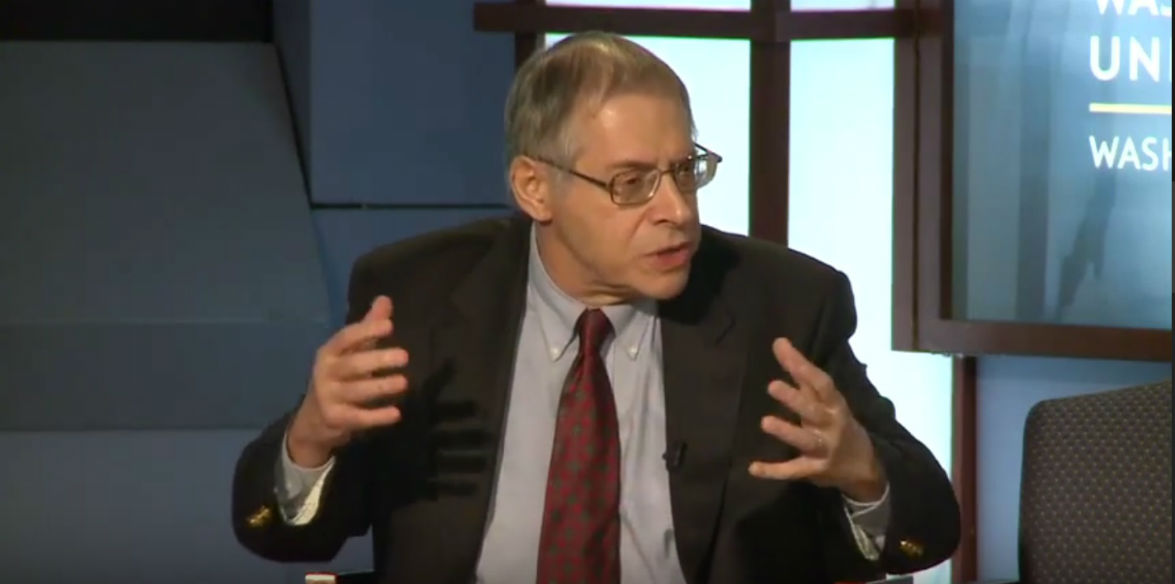This one is years old. I’m posting it here as is, because it is still of great current interest.
A couple of weeks ago, I posted on a simple solution to the problem of getting money out of politics. I said then:
If the election you’re voting in is virtually a two candidate contest, then vote for the candidate, who, in combination with her/his supporters spends the least amount of money. In a virtual multi-candidate contest, do the same thing.
That’s the proposal, in its simplest form. Its objective is to reverse the current race to the bottom in buying elections by ensuring that there would be a powerful incentive to start a race to the top to raise and spend as little money as possible in campaigns. That incentive is that if you spend too much you lose, pure and simple.
The other rationale for the rule is that the person who raises and spends the least amount of money for a campaign, will generally be the person who is “less bought” by wealthy people, financial interests, and large corporations. Eventually, if the rule took hold it would no longer be said of the Congress that “the banks own the place.
I cross-post at a number of sites, and at Daily Kos I received a comment from “Musial,” which being of a certain age, engaged me immediately. The comment advised me to read the “money outta politics” solution, which “Musial” felt was superior to my own. It says:
Citizens commit to one-issue voting: the MOP bill. If a candidate pledges, in writing, to vote for MOP, a voter will deliberately put aside all the other political, economic, and social issues for that one election. No matter where the candidate stands on ANY other issue, if he/she supports MOP, you vote for; if not, against. Incumbents who refuse to endorse the MOP legislation are turned out of office. This can be tough for many people. An incumbent may be good on many issues. An opposing candidate may stand for things you despise. But if that candidate is the only one who pledges to support MOP, or the incumbent will not, he/she will get your vote.
Why? Because until we get money out of politics, ALL other issues will continue to be corrupted by big money campaign contributions.
I think this is good, but it doesn’t prevent people who get big money from the Kochs or other sources supported by other billionaires and big corporations from saying that they support the “money outta politics” solution and then reneging when they’re elected. The probability of candidates doing that increases to the degree they are funded by big money contributors, because many of the newly elected will believe that if they have both the advantages of incumbency, AND big money in future elections, then they will win. So, I propose adding my simple solution to the effects of big money to this one and voting for the candidate with the least money who pledges to enact the “money outta politics” solution.
The money outta politics solution, apart from the idea of using petitions and single issue voting, proposes legislation whose core is for Congress to use its Constitutional authority to strip jurisdiction for certain legal challenges from the US Supreme Court. In addition, the proposed legislation called “The Doris “Granny D” Haddock Act,” also contains many other provisions controlling the role of money in politics, and making elections more fair, along with a retroactive application section that repeals Supreme Court decisions in Buckley v. Valeo, 424, US. 1 (1976), and Citizens United v. Federal Election Commission, 558 U.S. 50 (January 21, 2010), as well as others.
That provision would restore all laws invalidated by these decisions, except ones in conflict with other provisions of the proposed legislation. I’ll leave it to my readers to follow the link I’ve provided and read the full legislative proposal. But let me emphasize strongly that I think it is the best proposal for getting money out I’ve seen, and a lot more feasible than the constitutional amendment proposals circulating right now, because they require so many hurdles to clear, so much time to get done, and will use language both easy to loophole and subject to Supreme Court misinterpretation. This combined solution, in contrast, requires only a Congress committed to legislate it by simple majority and that, in turn, only requires applying the two simple rules stated initially.
In short, we can get out from under Citizens United and corporate control of our elections. We just have to win one time and change the landscape, by constraining this runaway anti-democratic Supreme Court. We can do that, and save our democracy can’t we?
